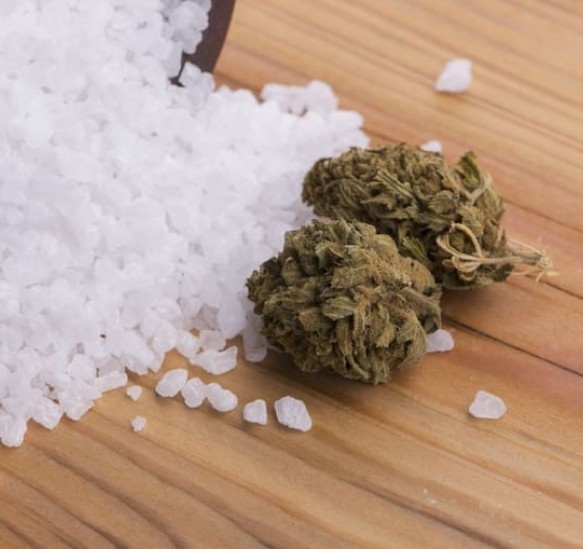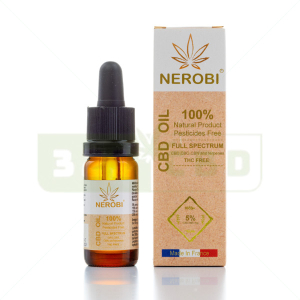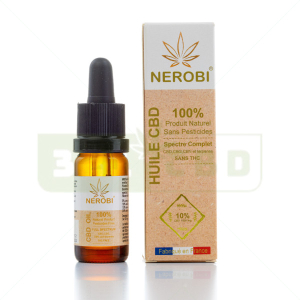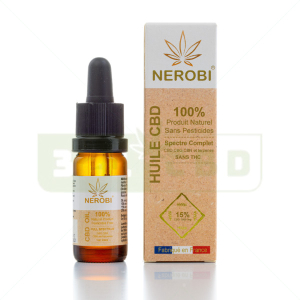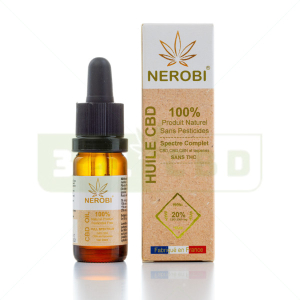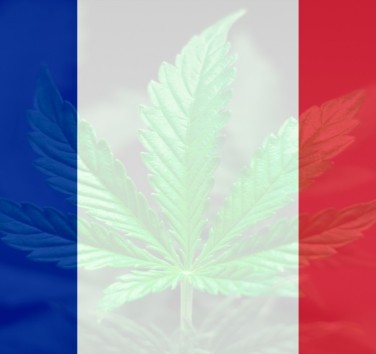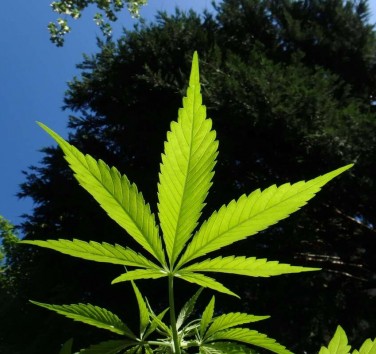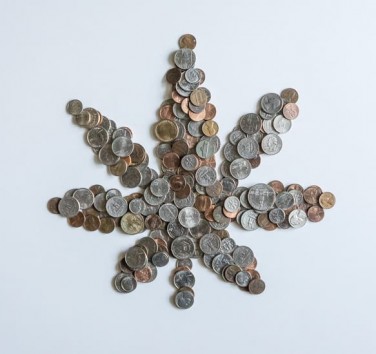Today, people of the Muslim faith are wondering about the halal or haram position of this substance which, on the face of it, could be good for their health, but which suffers from the illicit reputation that cannabis holds in society as well as in religion.
If this is the case for you, in this article, let's unpack the effects of CBD to determine whether CBD is considered halal or haram in Islam and which CBD-derived products are allowed for consumption.
.jpeg)
Illegal substances in Islam
Intoxication is forbidden in Islam, even in small doses. Any product that contains intoxicants, i.e. substances that can alter a person's mental faculties, consciousness, behaviour, actions, lucidity and common sense, is prohibited and Islam advises to stay away from them.
Among the intoxicants are first of all alcohol, then psychoactive drugs as well as chemicals such as solvents whose vapors alter consciousness if inhaled.
Does CBD fall into this category of intoxicants forbidden by Islam? To answer this question, it is good to understand what exactly CBD is.
What is cannabidiol (CBD)?
CBD is a component found in the cannabis plant. It is one of more than 100 other active components that each have different effects and properties on the body
Cannabis has always been well known for its euphoric properties that alter the consciousness of its users. These euphoric effects are produced by another component, THC, which is the cause of this state. Other components present in the plant have different effects, but most of them are non-psychoactive like CBD. Only THC, a substance that is illegal and forbidden for consumption by law in France, is the cause of cannabis' reputation.
CBD has been studied extensively in laboratories since its therapeutic properties were discovered. Indeed, many tests have been carried out on animals, and then on humans, to determine how CBD acts on the human body and what are its effects, both negative and positive.
The scientific consensus is that CBD is a non-psychoactive product that cures many symptoms in people suffering from chronic pain, difficulty sleeping, inflammation and depression
Moreover, it is also clearly attested that the CBD molecule has no proven side effects, apart from a drying of the mouth. Moreover, the limit of consumption of the product for it to become toxic is very high and impossible to reach for a lambda consumer.
When isolated from THC, CBD has no possibility of being assimilated to a euphoric drug and can be considered as a remedy coming from a plant, as could be a thyme tea for a sore throat.
Plants have always been the best allies of humans to cure mild ailments naturally, so CBD can be added to that list.
Does CBD make you "high"?
As explained above, CBD does not make you "high". No euphoric effects can be attributed to the CBD molecule itself. It acts like a painkiller, an analgesic or a chemical antidepressant that you could buy in a pharmacy, except that it is derived from natural products
Note that it is important to consume quality products, approved by the state and whose composition is clearly indicated (as it should also be for products such as gelatin in candy for example). Reputable CBD products will always be accompanied by a CA or CoA (Certificate of Analysis) which determines the quality and purity of the product and lists the components present.
%20(1)%20(1).jpeg)
Is CBD authorized by French law?
Today, France allows the consumption and marketing of CBD products with less than 0.2% THC in their composition. The World Health Organization (WHO) considers that CBD is not harmful for health and therefore is not included in the list of substances to be controlled.
Is CBD addictive?
No, CBD is not addictive. Drugs, including THC in cannabis, are generally addictive and this is one of the reasons why governments prohibit their use. Many scientific studies have confirmed that CBD has no additive effects. Let's try to understand biologically why.
When you use a drug, you trigger the production of a hormone called dopamine or the pleasure hormone. There are many studies that show that drugs like cocaine act on the nervous system to promote the production of dopamine and thus send pleasure signals to your body. Because the feeling of pleasure is so pleasurable, the body wants to reproduce it and therefore sends signals to the body to repeat the action so that the feeling is repeated. It is the same system with food addiction for example
CBD does not act on the production of dopamine. It has no significant "pleasure sensation" effect that can produce an addictive effect in the long term and the WHO confirms this.
Some other studies (here on cigarettes) are positive on the fact that CBD would help to reduce dependence on certain substances by stabilizing the effect that an additive product would have on the limbic system producing dopamine.
What CBD products should I choose as a Muslim?
According to the scientific information described in this article, we are definite about the halal position of the CBD molecule. It is a natural product that does not make you "stoned".
Regarding its consumption, the choice of products will be decisive. It depends on your sensitivity on the subject to determine if the presence of less than 0.2% THC, in some CBD oils, for example, is low enough (and therefore non-psychoactive) that you can consume it and be at peace with your beliefs
Full spectrum CBD oil or full spectrum for example, may contain tiny traces of THC, but even these are considered halal due to the "negligible amounts" that do not impair mental faculties. If this level bothers you, there is another solution. Do you know CBD isolate?
CBD Is olate isolate is the purest CBD product you can find on the market. It contains ONLY CBD, and no other molecules. It is just as effective although it is slightly different in its consumption. Learn more about the difference between full spectrum CBD and CBD isolate.
CBD candy candies are definitely not recommended for Muslims as they are made from gelatin which usually contains animal fat and often pork.
CBD flowers flowers are also to be taken with caution. Ask about the composition of the flowers. Those sold in France, in e-shops like 321 CBD, do not contain more than 0.2% THC.
The CBD in vaporization will be halal or haram depending on your consideration too. It can be held at the same level as smoking because it is to inhale the product. So it is a matter of technique and not the product.
Whatever happens, make sure you know what the products you buy are made of, just as you would with food or medicine.
If you are interested in quality CBD products, do not hesitate to visit the 321 CBD e-shop e-shop to see the range of 100% Premium products.

